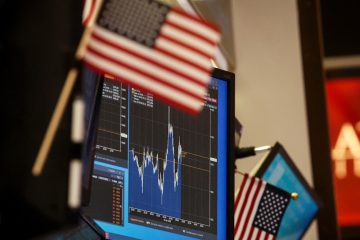3 ways to prepare for the coming recession
What is it with politicians and bureaucrats who can’t keep their word? I’m all for flexibility and changing your mind when the facts change…
But how about when the facts remain the same?
For example, President Obama famously drew a line in the sand in Syria. Then when that line was crossed, he did nothing.
Fed Chair Janet Yellen said she’d start raising interest rates once unemployment fell below 6.5%. Today, unemployment stands at 4.9%… yet the Fed has raised rates only once, last December.
Most recently, Yellen & Co. said they would likely raise rates only twice in 2016, rather than the four times they had indicated earlier.
In all fairness, the economy isn’t exactly roaring ahead – but it has improved. Unemployment has fallen sharply, though wages haven’t increased much.
I’ve been saying for two years that the Fed won’t likely raise rates until we see some wage inflation. But its inaction has caused some problems, not the least of which is being unable to take the Fed at its word.
This period of artificially low interest rates is unhealthy. It leaves no bullets in the chamber should a shock to the system occur. (In other words, the Fed has little ability to take actionable steps if something unexpected hits the U.S. economy.)
Has it staved off economic corrections and recessions? Sure. But it did so by inflating assets and making money extremely cheap to borrow.
That may sound like a good thing. But if you think so, you’re missing a major point… recessions are healthy. They’re part of a natural economic cycle thatclears away unhealthy companies and debt. And while they are often painful, they are generally short-lived.
Over the past 100 years, the average recession has lasted just 13 months.
On last week’s episode of Oxford Club Radio, I spoke about this idea with Danielle DiMartino Booth, a former analyst with the Federal Reserve of Dallas. She shares my concerns about the Fed’s unwillingness to raise rates and allow a normal recession to take place.
In fact, she warns that it will lead to “something two years from now that makes the Great Recession look like a cakewalk.“ To listen to our full discussion, click here. (The interview starts around the 10-minute mark.)
So, with a possible recession looming, how should investors prepare? There are a few things you can do…
- Buy Treasury Inflation-Protected Securities (TIPS) – These are Treasurys that are indexed to inflation. So if the economy improves and inflation rises, your investment maintains its buying power. On the flip side, if Ms. DiMartino Booth’s forecast comes true and we experience a bad recession in a few years, your money – while it won’t grow much – is protected. You will get all of it back as long as you don’t pay more than par for the security.
- Invest in Perpetual Dividend Raisers – If your long-term money is in stocks with solid track records of raising the dividends, you’ll accomplish several things at once. For one, the increasing dividend should keep up with or outpace inflation, giving you more income even during a recession. These stocks also tend to outperform during tough times.
- Get Out of High-Yield Bond Funds – If rates don’t rise, the bonds in these funds should hold their value for a little while longer. But then a recession could cause the riskier bonds to default. On the other hand, if inflation and interest rates climb, these bonds will lose value. There’s nothing wrong with owning some high-yield bonds that you buy at a discount and hold to maturity. But bond funds are a different animal. With rates so low, they’re practically guaranteed to lose money over the next several years.
The Fed has a simple choice: Let the economy suffer a cold, eat some chicken soup and stay in bed for a few days… or risk a bout with pneumonia in a few years that will land it in the hospital.
No one wants a recession. But a normal cycle is necessary to keep the economy healthy and on track.
Let’s hope the next time the Fed says it’s going to do something productive, it actually does it.
Good investing,
Marc
Crux note: As Marc mentioned above, perpetual dividend raisers are an ideal income investment for bear markets and recessions. These businesses have a proven history of raising their dividends each and every year – through the Great Recession, 9/11, the internet bubble, the Gulf War… some even as far back as the 1960′s. No matter how close the end of the world looked over the last few decades, these businesses have continued to thrive and pay their shareholders more and more money.
Marc tracks an updated portfolio of the very best recession-proof stocks in his Perpetual Dividend Portfolio, part of his Oxford Income Letter. You can learn more about Marc’s all-weather income system right here.

